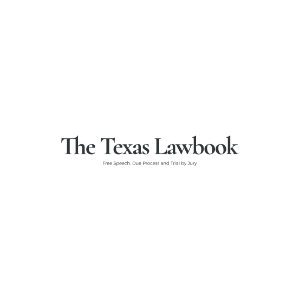Slip and fall accidents are a regular occurrence. Whether you are in a store, a mall, or over at a friends house, there is always the possibility that you can slip and fall and injury yourself if the property owner has left something on the ground that should not be there. While some of these accidents are minor and do not leave any quantifiable injuries, others are more severe and leave long lasting and severe injuries.
Common Reasons for Slip and Fall Accidents
There are thousands of reasons why you could slip and fall in a store or on another’s property. While some stores and establishments invest substantial time and money to preventing these sort of accidents by employing safety experts who can use different measuring instruments to measure slip resistance on a surface. Other establishments are not as careful or merely have not thought about such exhaustive methods. However, there are several common reasons why a person may slip and fall. Some of these include:
- Slips and falls on ice
- Tripping over curbs
- Debris left on the ground
- Holes in the floor
- Cracks in sidewalks
- Uneven walking surfaces
- Improperly maintained parking lots
While this list is not exhaustive, it does highlight the fact that danger is lurking everywhere when you are out and about.
Theories of Premises Liability
When someone is injured on another’s property they will likely want to seek monetary compensation for their injuries. However, the legal theory that they recover under depends on the circumstances of the accident. In general, there are four theories of premise liability including:
- Strict liability
- Dog bite cases
- Attractive nuisance
- Negligence
By far the most common method that an injured party will employ after they have been injured on another’s property is under the negligence theory. Under this theory, a defendant must show that the plaintiff property or store owner owed them a duty of care, that they breached this duty of care, that because of this breach they were injured in some way, and then they must prove their injuries.
Who May be Liable for a Slip and Fall Accident?
Determining who is responsible for a slip and fall accident is not always as black and white as it seems. Often there are multiple parties who may be involved in a single store or property. Some of the most notable parties who may be liable for a slip and fall accident include:
- Property owner – the property owner is usually responsible for all injuries occurring on the Common Areas.
- Property manager – the property managers responsibilities are typically the same as the Property Owner, however, this is subject to a few notable exceptions.
- Tenant – the tenant is responsible for injuries that occur within the premises. In addition, they are responsible for injuries that occur in areas that are outside of the premises which the tenant has maintained, or over which the tenant has exercised some objective form of control.
- Vendor – Injuries that are caused by vendors can come in many different forms including:
- Falls caused by incorrect cleaning procedures (Overnight Crews)
- Improperly stocked shelves (Product stacked too high or not balanced)
- Improper maintenance of mechanical systems
- Falls caused by hazards created by Vendor in course of performing job
- Injuries caused by Vendor negligence (Negligent conduct)
- Slip & Falls caused by improper or delayed plowing of Common Areas
Determining who may be liable usually involves a close examination of the lease. In reviewing a lease it is important to note the provided definition of the Common Area. In addition, it is important to describe the tenants’ responsibilities for maintaining the common area.
How Do You Calculate Damages from a Slip and Fall Accident?
If you were in a store or someone’s property and slipped, fell, and subsequently were injured you probably want to know what is the value of your case. While it is impossible to predict the exact amount that the court will grant you in the event that you are successful in your claim, however before you even worry about that you should work with an attorney to calculate the damages you have sustained.
To begin this process a defendant may simply ask himself or herself what have they lost? This may include looking at:
- Medical expenses as a result of the accident
- Lost wages from the accident
- Loss of enjoyment of life or career
- Incidental damages
Some of these values are easy to put a dollar amount to. If you went to the doctor and you were presented with a $500 bill for your treatment, then this is a damage and a loss that you have sustained, which the court may be able to provide you with compensation for. However, such events as loss of enjoyment of life or loss of career potential may not be as easy to put a dollar amount on.
Contact a Slip and Fall Lawyer in Irving Today
Texas’ injury compensation laws can be complex, but you don’t have to go through the process without help on your side. Count on the experienced Irving Texas Slip and Fall lawyer of Queenan Law for dedicated, around-the-clock legal support and representation. Call our law offices right away at (817) 476-1797 to schedule a free and confidential legal consultation.






